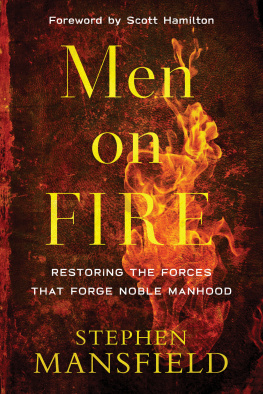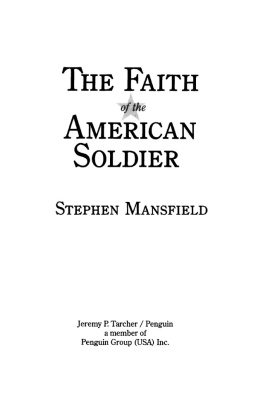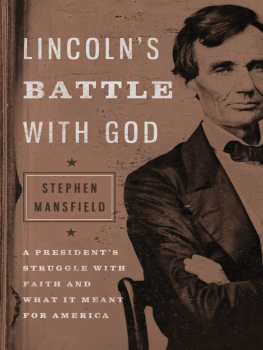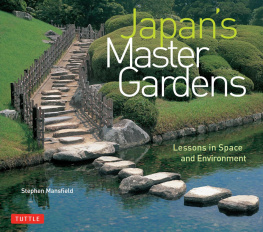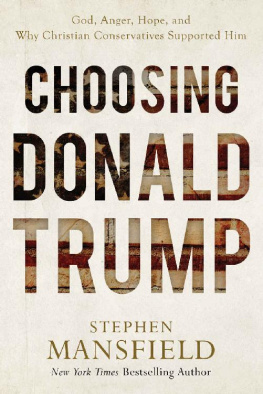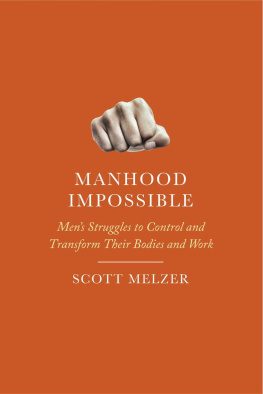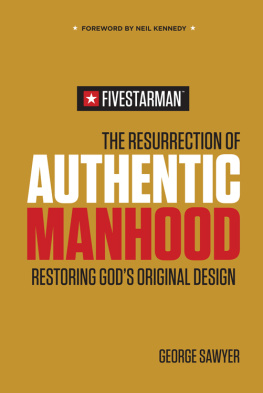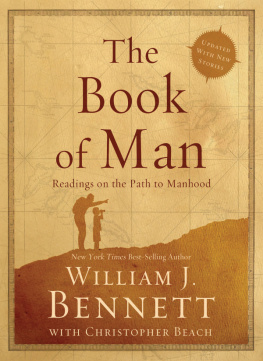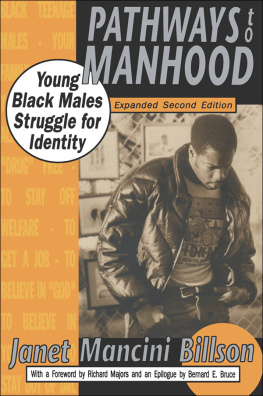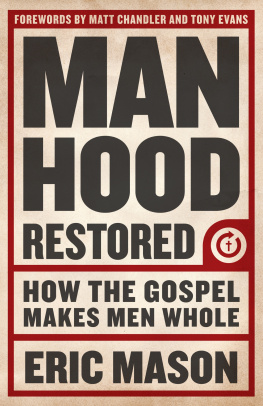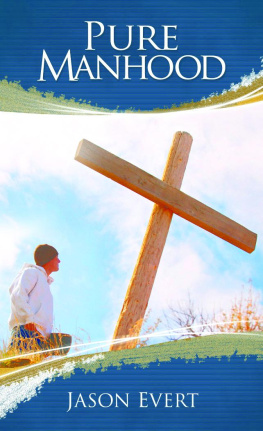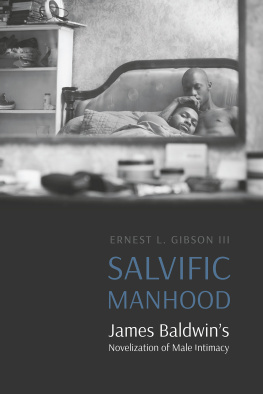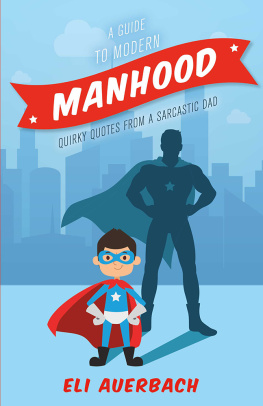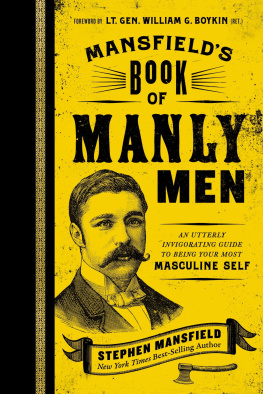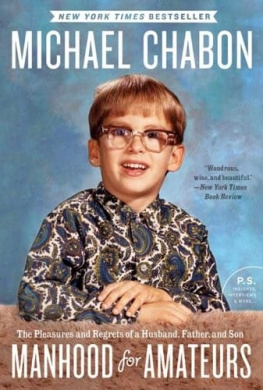Gentlemen, We Begin...
1. The Fire of Heritage
2. The Fire of Battle
3. The Fire of Destiny
4. The Fire of Friendship
5. The Fire of Love
6. The Fire of Legacy
7. The Fire of God
8. The Ritual
Foreword
Scott Hamilton
I remember years ago watching a movie in which comedian Paul Rodriguez had a line he repeated time after time: Its tough to be a man, baby! I laughed every time I heard him say it and found ways to repeat it in an attempt to be funny. The crazy thing isits tough to be a man!
In my sixty-plus years, Ive witnessed how our evolving culture has coerced men to act in certain ways. At times, I feel like Im back in high school: today we are expected to dress, speak, and live according to whatever our culture tells us is right and acceptable. Its almost reactive being a man today, not intentional. We stay in our lane, stay out of trouble, and try to stay on course in a world that keeps changing the rules of engagement.
So what does it mean to be a man in our time? The answer to that question is as different for each of us as we are from each other. We all have a distinct identity that gives our lives purpose and allows us to live joyfully and productively. The definition of what it is to be a man will be unique to every one of us. But even saying that, I know that there are parameters to successful manhood. Culturally, spiritually, physically, emotionally, and psychologically, we need to connect with who we are as men and live it boldly and unapologetically.
For me, growing up the smallest, weakest, and sickest kid in my class, I never felt the power and strength of approaching manhood. I believed I was always going to be bullied and did everything I could to get along with just about everybody. It didnt help that I ended up in the female-dominated sport of figure skating, and you can imagine the challenges I had with my manhood in that world.
So much of our identity as men comes from our earliest days of childhood. In my case, I was adopted by two schoolteachers from northwestern Ohio. My father was a PhD and a professor of biology at Bowling Green State University. He was studious, serious, and an incredibly demanding instructor. He would always say, No one is taking my class for the grade.
My fathers reputation was well known. Once, when I was at a fundraising event for Kristi Yamaguchis Always Dream Foundation, basketball legend Nate Thurmond was in the audience. I knew he had gone to Bowling Green, so from the stage I asked him if he would answer a question: Mr. Thurmond, you went to BGSU, didnt you? He said yes. I asked him if he ever had my dad for biology. There was a long pause, and then he said loudly, Twice! It was a very funny moment for the audience, and it reminded me to apologize to anyone who ever took a class with my father. The truth is that my father was strict and difficult to connect with. I loved him, but I definitely feared him too.
My mother was the opposite. She was very much the nurturing type, and I loved her more than anyone in the world. Beloved by everyone in my community, she gave and gave and gave some more. She was the definition of sacrificial. Even while she was going through cancer, she would never give up an opportunity to positively impact everyone around her. She was the one who gave me my view of the world, and I am so grateful for her.
But a mans earliest influences arent only his parents. In my case, I spent most of my time with my coaches. From the funny and energetic Rita Lowery I learned the value of laughter. Giuliano Grassi was short-tempered, demanding, and ultimately not a long-term coach; sometimes a life lesson is about changing what doesnt work. I idolized coach Herb Plata, but he had health issuesso then I began lessons with 1932 Olympic champion Pierre Brunet, who taught me about integrity and the honest pursuit of perfection. After he retired, I started working with the team of Evy Scotvold and Mary Ludington. Evy was by far the toughest coach I ever had, moderated by Marys unconditional love. I learned that love tempers everything, even work.
When my parents could no longer support my skating, world-famous coach Carlo Fassi found a sponsor for me, and I moved to Denver to take lessons from him. Later Don Laws guided me to my first Olympic Games, then four US and World titles, and an Olympic gold medal in 1984. Don became family to me but not really a father; he was a private man. This, too, is a valuable life lesson, though perhaps not one I appreciated until later.

